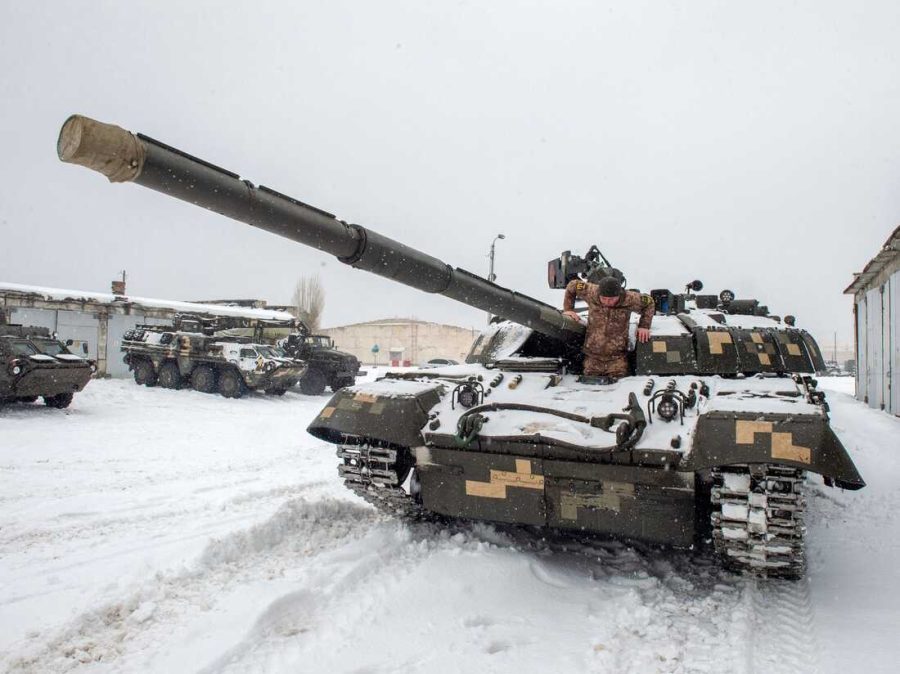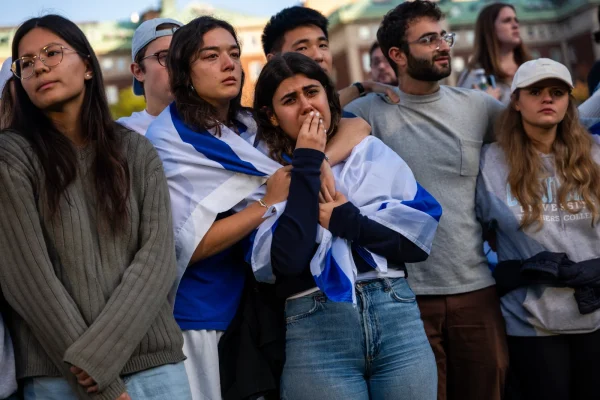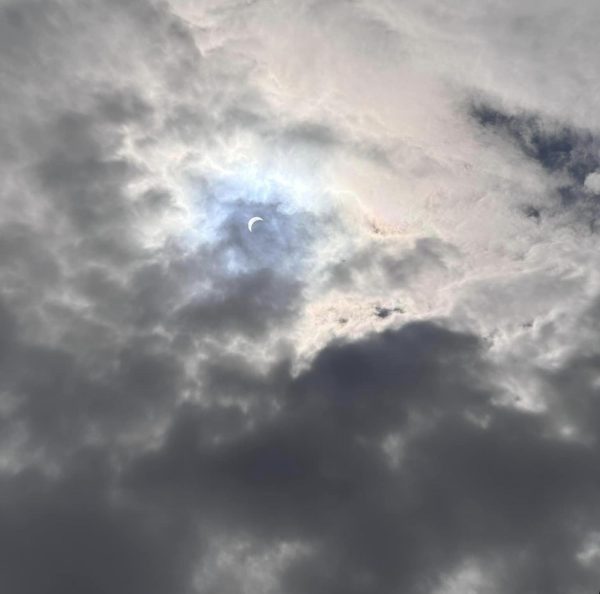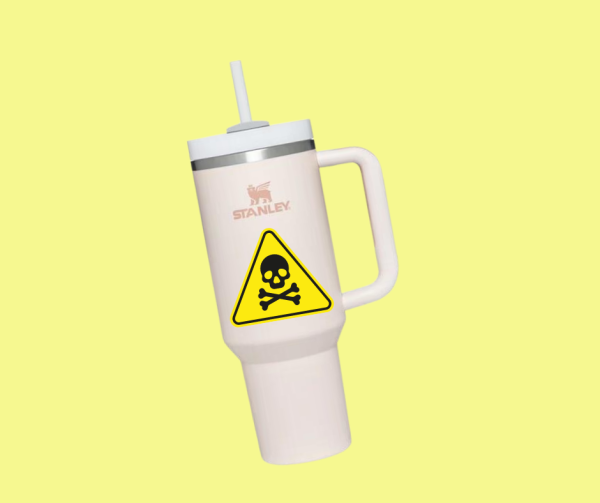Russia sends 100,000 troops to Ukrainian border as tensions rise
Biden and other European allies warn of retribution if Putin invades, including sending 8,500 troops to the border
Photo courtesy of NPR.org (AFP via Getty Images)
An Ukrainian Military Forces serviceman exits from a tank on the Ukrainian border with Russia
February 1, 2022
Concerns over Russia’s potential invasion of Ukraine escalate as troops and military equipment are being moved to the border in response to Ukraine’s pursuit of joining the North Atlantic Treaty Organization (NATO), leaving world leaders scrambling to cease intensification of the conflict.
Subsequent to the fall of the Soviet Union in 1991, Ukraine, previously one of fifteen republics in the union along with Russia, declared independence on August 24, 1991. A successful consolidation of independence brought on a pursuit of democracy for Ukraine. Ukraine sought to expel its Russian ties and push towards close relations with the West, seeking to join the European Union (EU) and NATO.
Since then, Russia and Ukraine have had ongoing conflicts, all escalating tensions over borders, control and politics. Such conflicts include Russia’s annexation of Ukraine’s Crimean Peninsula following Ukraine’s removal of their pro-Russian president in 2014. Russia then supported a sepaparist rebellion in Ukraine by sending troops and weapons to the rebels who have fought the Ukrainian military ever since, claiming over 14,000 lives. Moscow ultimately denied supporting the rebels, claiming that any Russians who joined the separatists were volunteers.
According to Aljazeera, which has been closely monitoring the Russian-Ukrainian conflict, “Russian President Vladimir Putin has repeatedly said Ukraine’s aspirations to join NATO are a red line, and expressed concern about plans by some NATO members to set up military training centres in Ukraine. This, he has said, would give them a military foothold in the region even without Ukraine joining NATO.”
Russia essentially wants Ukraine to not become a part of NATO and to prevent Ukraine from prospering and/or posing any threat to its own sovereignty. Tensions are quickly escalating as talk of Russia invading Ukraine is spreading, a threat that is not so unbelievable after Russia’s seizure of Ukrainian territory, Crimea.
BBC News reports that “Russia’s armed forces chief Valery Gerasimov denounced reports of an impending invasion as a lie…Russia denies it’s planning any invasion, but it has seized Ukrainian territory before and it has an estimated 100,000 troops deployed near its borders.”
Russia’s claims of noninvasive intent seem implausible with such large numbers of troops situated on the border and a contradictory threat from Russian President Vladimir Putin announcing “‘appropriate retaliatory military-technical measures’ if what he calls the West’s aggressive approach continues.”
In a discussion between Deputy Secretary of State Wendy Sherman and Russian Deputy Foreign Minister Sergei Ryabkov, NPR quotes Ryabkov’s stance on the possibility of Ukraine joining NATO: “For us, it’s absolutely mandatory to make sure that Ukraine never, never, ever becomes a member of NATO… It’s a matter of Russia’s national security.”
Russia outlined their primary demands in a draft security pact in December, insisting upon the U.S. preventing eastward expansion of NATO and that no previously Soviet states are to join as well as the U.S. must not establish military bases in any former Soviet states that are not members of NATO. Ukraine was not specifically named in the security pact but is an obvious centerpiece of Russia’s objective.
The motive behind Russia’s defiance of Ukraine’s relations with NATO relies mainly on its geographical location. It stands as an extra border between Russia and the European countries, which may be helpful to Russia if there were to be a war against the European states. Putin also claims that Ukraine and Russia are “one people,” with cultural and linguistic similarities, evident in his article titled “On the Historical Unity of Russians and Ukranians.” But first and foremost to Russia, Ukraine joining the EU and NATO would diminish the nation’s geopolitical influence and power.
Contradictory to President Biden’s initial moderate stance to not yet take action in Ukraine, New York Times reveals that 8,500 American troops will be on high alert for deployment to Eastern Europe, bracing for an invasion of Ukraine. Most of the troops will participate in a NATO response force with the remaining troops working in the U.S. response to provide assurance to American allies fearful over an expansion of Russia’s invasion.
“‘It’s very clear the Russians have no intention right now of de-escalating,” said Pentagon spokesman John F. Kirby, “What this is about, though, is reassurance to our NATO allies.’”
Bloomberg states that “EU countries agree that any crossing of the border by Russian troops must prompt sanctions, the officials said. But beyond that, there is no agreement on other trigger points for restrictive measures.”
The EU’s major responses to Russia are not being publicized as officials claim it would be unwise to share their intentions and then fail to meet them once Russia acts.
“The European Commission, the EU’s executive arm, is expected to share its package of proposals with member states only if and when Russia acts against Ukraine. Sharing the document for open discussion before then could jeopardize the EU’s credibility, several officials said. Discussions would be leaked, revealing the EU’s hand to Russia, and descend into member states picking and choosing the measures that least affect their economic and other interests.”
According to the Financial Times, sanctions in response to Russia taking action are still being decided as they move through the Senate, such as a bill including economic measures to punish Russia in the event of an invasion, sanctions over Russia’s largest financial institutions, and sanctions over Russia’s gas pipeline through the Baltic Sea.
CNBC reports that “The U.S., the U.K. and the EU have already said that Russia will be subjected to new sanctions on key individuals and sectors of its economy if it does invade Ukraine. Russia has already seen sectors like energy, finance and defense targeted by previous rounds of sanctions for its 2014 annexation of Crimea from Ukraine.”
“The US delivered roughly $450 million in security assistance to Ukraine in 2021, the Pentagon said, including a package of small arms and ammunition in December. The Biden administration is now weighing new options, including providing more arms to Ukraine to resist a Russian occupation, a senior US official told CNN.”
White House National Security Council Spokesperson Emily Horne claims “President Biden said that there is a distinct possibility that the Russians could invade Ukraine in February.”












